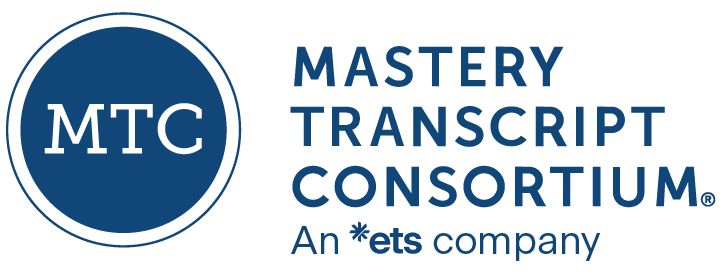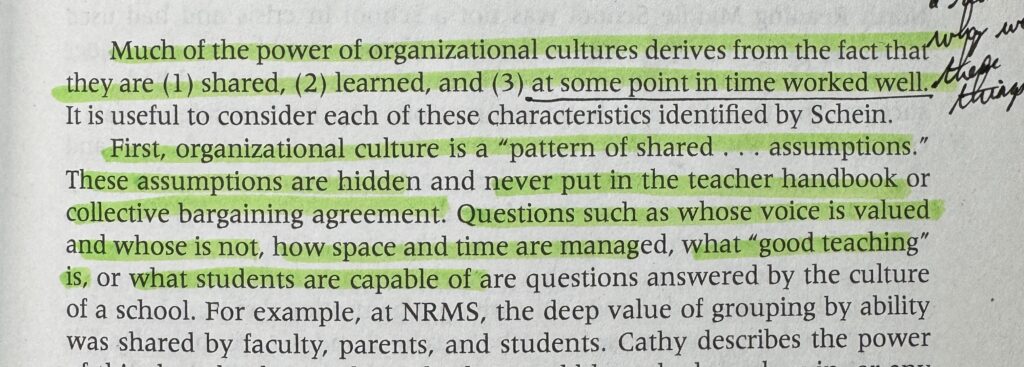The only thing of real importance that leaders do is to create and manage culture. If you do not manage culture, it manages you, and you may not even be aware of the extent to which this is happening.
Edgar Schein
I’m reading An Uncommon Theory of School Change for a class, and the image text struck me. Actually, it knocked me to the floor.
Specifically, the idea of “shared assumptions” among a school’s teachers and staff. Every organization has these shared assumptions, and they all influence how the day-to-day functions of the organization, specifically in defining the organization’s culture, as Ed Schein explained.
So, why are these shared assumptions important in our schools?
Easy: they play a large part in how students learn. If teachers have decided, perhaps with the best of intentions, that “our kids can’t do that“–whatever that is–then it’s highly likely that the kids won’t do that.
(Somehow, this has turned into a bad commentary on one of Meat Loaf’s greatest hits…)
This line of thinking also shows up in John Hattie’s work, as teacher estimates of achievement significantly impact student learning.
Part of our work to change schools should involve a hard look at our shared assumptions and, perhaps, some adjustments to those assumptions.
After all, you know what happens when you assume something…
The Eclectic Educator is a free resource for all who are passionate about education and creativity. If you enjoy the content and want to support the newsletter, consider becoming a paid subscriber. Your support helps keep the insights and inspiration coming!



